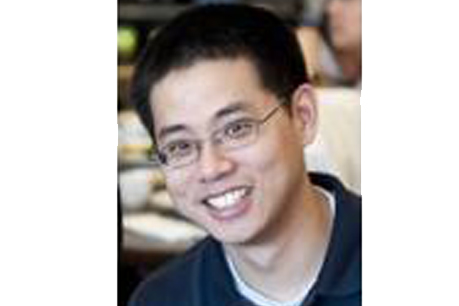
websitehttps://jtkchang.github.io/
emailjoshua.chang@austin.utexas.edu
phone (512) 495-5302
office HDB 5.202
Assistant Professor Dell Medical School
Joshua Chang completed both his Bachelors of Science as well as his Masters of Engineering at MIT in Electrical Engineering and Computer Science, focusing on signal processing and artificial intelligence. His masters dissertation was completed at MIT Lincoln Laboratory in missile tracking using different radar modalities. Before pursuing an MD/PhD at the University of Massachusetts Medical School (UMass), he worked as a software engineer at the Broad Institute and Harvard’s School of Public Health – Center for Health Decision Science. At UMass, he completed thesis in Quantitative Health Sciences and Neurology, under the supervision and mentorship of Dr. David Paydarfar designing and developing adaptive control algorithms to optimize stimulus waveforms for implantable medical devices. He continues his research here at Dell Medical School, studying ways to leverage artificial intelligence to better improve healthcare across diagnostics, therapeutics and predictive analytics.
One of the major areas of Joshua Chang's interest is in the optimization of stimulus waveforms for electroceutical devices. There has been growing interest in the field of electroceuticals, devices that use electrical stimulation as a therapy, across diverse medical disciplines. Most of these devices currently use a standardized waveform (e.g. the shape of the electrical current), and clinicians empirically tune these waveforms by adjusting a few parameters (e.g. amplitude, frequency). One of the major challenges in developing these electroceutical protocols is being able to find optimized waveforms (beyond rectangular biphasic pulses) in order to maximize health outcomes while minimizing adverse effects. In his lab, they are exploring different techniques and algorithms to try and find patient-specific, energy-efficient waveforms for electroceuticals. A second major area of research interest is in the development of intelligent algorithms to aid in clinical diagnosis, predictive analytics and personalized therapeutics, with a specific focus in time-series analysis. So much physiological data is being collected today both within the hospital, through bed monitors, and outside in every day living, through wearables. How to leverage this explosion of time-series data to anticipate pathophysiological disease and disorders is still an open area for exploration. The Chang lab is interested in understanding how to utilize traditional time-series analysis and more recent machine-learning driven timeseries tools to gain insight not only in how to predict and forecast adverse events, but also to better understanding the genesis of pathophysiological processes and how to optimally abort them.